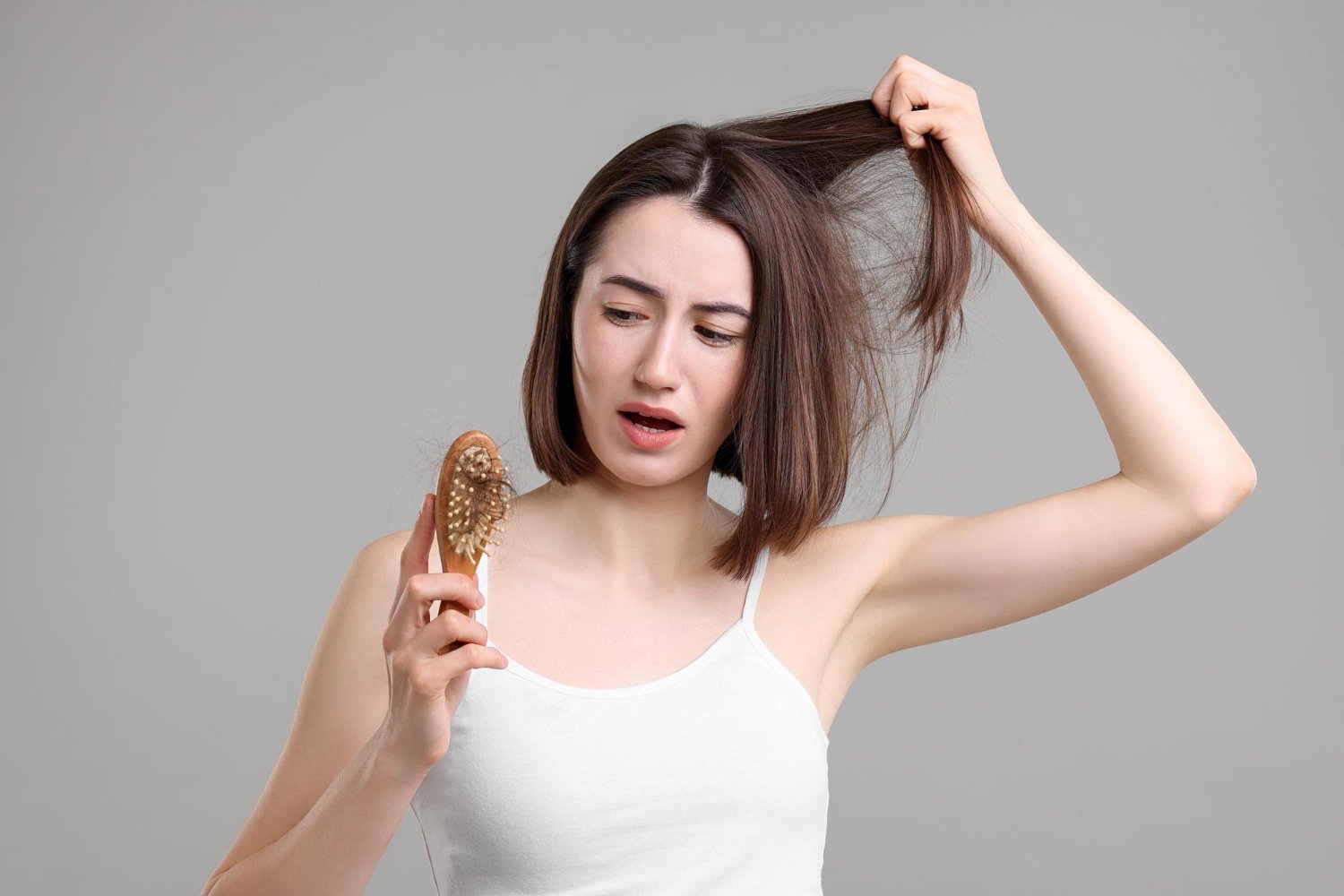- demo@example.com
- Lorem ipsum dolor sit amet consectetur.

Hair fall in PCOS, also known as androgenic alopecia, is mainly due to hormonal imbalance. PCOS often causes an excess of androgens (male hormones), which shrink hair follicles—especially on the scalp. This leads to hair thinning, particularly along the part line, temples, or crown area.
One of the key culprits is Dihydrotestosterone (DHT), a hormone derived from testosterone. In PCOS, higher levels of testosterone convert into DHT, which binds to hair follicles and weakens them. This causes shorter, thinner hair strands and slows down regrowth, leading to gradual hair loss over time.
Aside from androgens, other PCOS-related issues like insulin resistance, stress, nutritional deficiencies (iron, vitamin D, B12), and thyroid imbalance can worsen hair fall. These factors disturb the hair growth cycle and increase shedding.

A balanced diet plays a huge role in managing hair fall. Focus on foods rich in zinc, iron, biotin, omega-3s, and vitamin D. Include leafy greens, nuts, seeds, eggs, legumes, and fatty fish. Avoid sugar, refined carbs, and processed food as they can trigger insulin spikes and worsen hormonal imbalance.
Use mild, sulfate-free shampoos and avoid excessive heat styling or harsh chemical treatments. A gentle scalp massage with oils like rosemary, castor, or coconut oil can boost blood circulation and nourish follicles. Let your hair air dry when possible and avoid tight hairstyles that stress the roots.
Chronic stress increases cortisol, which can aggravate hormonal imbalance and hair fall. Practice stress-relieving activities like yoga, meditation, walking, or journaling. Getting 7–9 hours of quality sleep also helps maintain hormonal balance.
For persistent hair loss, consult a dermatologist or endocrinologist. Treatments may include minoxidil (topical), anti-androgens like spironolactone, or oral contraceptives to control hormone levels. Blood tests can also help identify nutrient deficiencies or thyroid issues that need addressing.
Hair regrowth with PCOS takes time. It usually takes 3–6 months of consistent care to notice visible improvement. Stay patient, focus on overall health, and treat your hair gently—recovery is absolutely possible.